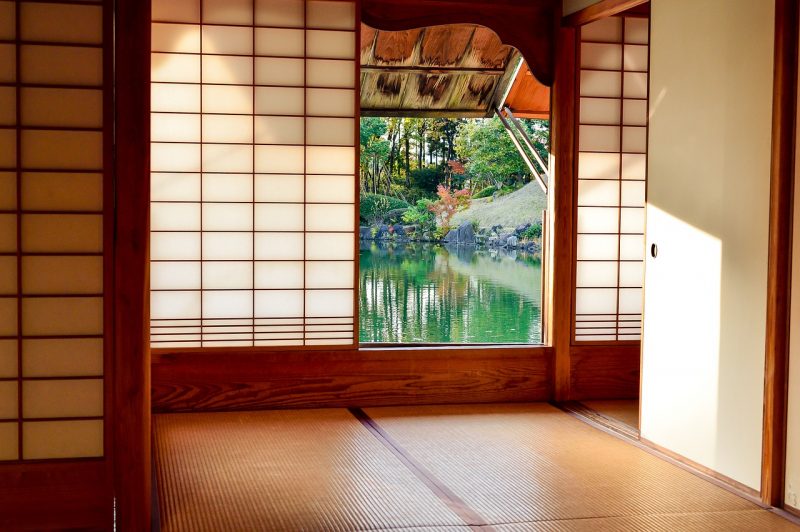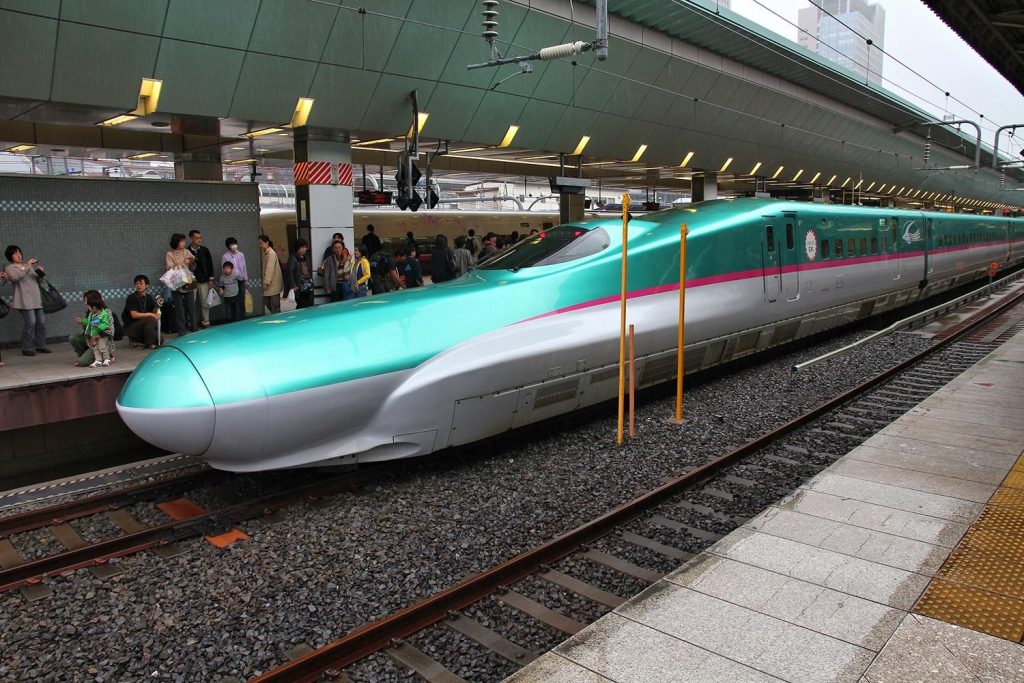When traveling to a new country for the first time, “culture shock” is expected. You may be especially intimidated if you have heard that there are a lot of “do’s and don’ts” for Japan. Consider these tips for traveling to Japan, and you will be sure to fit right in this warm and inviting country.
Table of Contents
Meeting and greeting tips
Bowing
When in Japan, it is polite to bow to the other person when you meet them, when you are saying thank you, or when saying goodbye. If someone bows to you, lean forward and incline your head in return. There are many complexities to the bowing ritual – such as how far, how long, and how many times to bow – but as a tourist, you won’t be expected to know these details. Simply making the effort will endear you to others.
Gifts and business cards
In formal settings, such as on a business trip, it is customary to exchange business cards or name cards when you meet someone. In addition to cards, you may want to bring some small souvenir gifts from your home country. Giving a gift is a sign of appreciation, especially if you are staying in someone’s home. Choose something small and unique to your homeland, such as a candy or key chain. Always use two hands rather than one when giving or receiving gifts or cards.
Clothing tips
Remove your footwear
When entering private homes, temples, traditional style accommodations, and even many restaurants and tourist sites, you will be expected to remove your shoes. You will usually see shelving to place your shoes on. You may by given slippers to use while indoors.
If the restaurant or accommodations include areas of tatami, or woven straw matting covering the floor, you will need to remove the slippers before walking on the tatami. You may leave the slippers at the room’s entrance.

Also, separate slippers may be provided for use in the restroom. Leave your original slippers outside the bathroom door, and change back into them when you exit the bathroom.
Tip: while traveling in Japan, wear shoes that you can remove and put on quickly and easily. Don’t forget to wear clean socks!
Eating and drinking tips
Table manners
Good manners involve words of appreciation before, during, and after the meal. Before you chow down, remember to say i-ta-da-ki-mas, the equivalent for “bon appetit” meaning, “I will receive.” During the meal, say oi-shii to indicate that you are enjoying yourself.
Afterwards, say go-chi-so-sa-ma de-shi-ta to express appreciation for the meal. Don’t be surprised to hear others slurping their soup or noodles – that is acceptable. It’s fun, too, so give it a try while in a land that welcomes noisy eating!
Using chopsticks
If you’ve already gotten the hang of eating with chopsticks, that’s good. Remember, though, that your mother told you not to play with your food – similarly, in Japan there are certain actions that are considered ‘playing’ with your chopsticks. Avoid using them to scratch an itch, signal to a waiter in a restaurant, point at someone, spear a piece of food, or drum on the table.
Also, don’t cross the chopsticks, leave them standing up in your bowl, and don’t use your chopsticks to ‘hand’ a piece of food to someone else’s waiting chopsticks. The latter are related to funeral rituals and are therefore not appropriate for mealtimes. If taking food from a communal serving dish, use the ‘wrong’ end of the chopsticks, opposite the end you put in your mouth.

Tipping in Japan
Tipping is not customary in Japan. If you leave a cash tip on the table, the waiter may not understand it and chase you down to return it. Money is also seldom passed from hand to hand. When paying for an item, you will place the cash in the tray provided. Your change will likewise be placed in this tray.
Temples and Shrines
Tours are offered at many Buddhist and Shinto shrines, and you may see these as mere tourist attractions – but remember, these are religious sites still used for worship. Be respectful when visiting a temple or shrine – don’t enter off-limits areas, speak softly, and dress respectfully (i.e., don’t wear your swim suit).
Religious rituals
Most shrines require ceremonial washing before entering. Use a ladle to pour water over your hands. Catch some of the water in your hand and rinse your mouth – spit the water onto the ground, never back into the water basin.

Trains and public transportation tips
Mobile devices
Talking on your cell phone in the confined spaces of a train or bus is considered rude. If you must use your phone to text message, turn the ringer to silent mode. Also, speak quietly to your travel companions.
Stay connected in Japan with a Pocket Wi-Fi
Queues and lines
In busy train stations, bus stations, and airports, you will be expected to form an orderly line. Don’t push ahead, and pay attention to directional lines painted on the floors.
In case of illness
Do not blow your nose while in a public place, and try to avoid sniffling or sneezing. If you are sick, purchase and wear a surgical mask to avoid spreading germs to others.
Also read: Japanese trains etiquette

The language barrier
While you may very well meet people who speak the English language, don’t assume that everyone will. Instead, learn some helpful phrases in Japanese, such as sumimasen, meaning “excuse me” or “sorry,” and arigato, which means, “thank you.”
Even if you make a mistake or forget what is expected in a certain situation, always be kind and patient with yourself and others around you. The locals will likely be pleased with your efforts at mastering Japan etiquette, even when imperfect.
To enhance your language skills, consider various methods of learning some Japanese before your trip. For instance, you can use language apps, watch Japanese movies with subtitles, or listen to Japanese music and podcasts if you’re more advanced.
If you’re going to stay in the country for a while, another very effective way to deepen your understanding of Japanese culture is by taking formal classes. Attending a language school in your local area or opting for the convenience of online classes can be incredibly beneficial.
Services like Coto Academy offer comprehensive courses tailored for different proficiency levels, making it a great resource for learning Japanese. Working with experienced instructors and immersive teaching methods can significantly boost your confidence and ability to communicate effectively in Japan.
But remember, communication is not just about words. Non-verbal cues, such as bowing, maintaining appropriate body language, and understanding personal space, also play a significant role in Japan. By combining basic language skills with an awareness of these cultural nuances, you’ll find your interactions much smoother and more enjoyable.
Are there any cultural faux pas I should avoid in Japan?
When visiting Japan, it’s also important to be aware of certain cultural faux pas to avoid offending locals or embarrassing yourself. Here are some key points to keep in mind:
1. Using toilet slippers
Many places provide special slippers for use in the bathroom. Be sure to switch to these slippers when entering the bathroom, and remember to switch back to your regular slippers or shoes when you leave[
2. Eating and drinking while walking
It is generally considered sloppy to eat or drink while walking. Instead, find a place to sit and enjoy your food or drink to avoid making a mess.
3. Handling business cards
When receiving a business card, accept it with both hands and take a moment to look at it before putting it away. Avoid stuffing it into your pocket or leaving it behind, as this is seen as disrespectful.
4. Blocking the escalator
In Japan, it’s customary to stand on one side of the escalator to allow others to pass. In Tokyo, for example, people stand on the left and walk on the right.
5. Taking photos without permission
Always ask for permission before taking photos of people, especially strangers. Respect “no photography” signs when you see them.
6. Public displays of affection
Avoid PDAs such as hugging or kissing, as these are generally frowned upon in Japanese culture.
7. Jaywalking
Always use designated crosswalks and wait for the signal to cross. Jaywalking is not only problematic but can also result in fines.
By being mindful of these cultural nuances, you can show respect for Japanese customs and make your visit more enjoyable for both yourself and the locals 🙂
